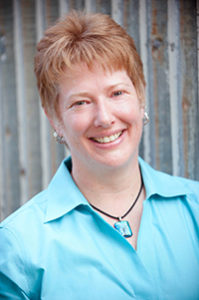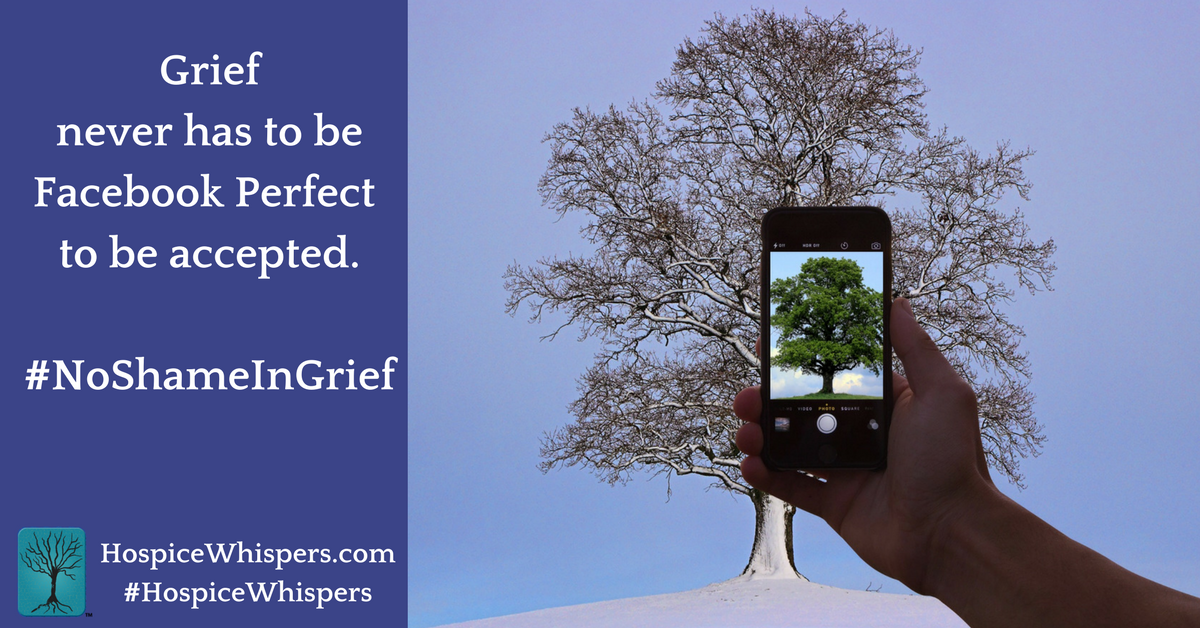By Carla Cheatham (a 4-minute read)
You may have heard the term, “Facebook perfect”. It’s the idea that, as wonderful as social media can be in connecting persons and providing the immediate sharing of information across the globe, it has a downside.
How often do you clean your house before someone comes to visit? I’m sure I’m not alone in straightening up before the housekeeper comes! In fact, I often joke that I pay her not so much to clean my house but to keep me accountable for decluttering and putting things away. I’m about to turn 46, but there’s still a young part of me that objects to cleaning my room.
We do something similar when we share ourselves publicly. Even before walking out the door we shower or at least put on a baseball cap to cover our bedhead.
When we share on social media, we cannot help but follow the same model. Our mothers instructed us to put on clean underwear before traveling in case we were in an accident and to suck in our guts so our bellies wouldn’t show. Some things stick with us.
How many of us hurt ourselves, with aching backs and restricted breathing, by walking around with a way too tensed up torso trying to hide that our muffin top exists?
Before group pics go on Facebook, Instagram, or Snapcha, we get our friends’ approval, because someone always thinks their chin or eyes or hair isn’t just right. We put the best of our smiling lives out there for everyone we know to see.
We don’t share our angry faces when someone almost runs us off the road or post the ugly things we yell things at them from the relatively safe anonymity of our cars. We don’t post our snarking fights with our partners or nagging of our children or their rolled eyes and pouting lips in response. We don’t write about the one more date that was a dud or the loved one that relapses, again.
We don’t share that we’re terrified about keeping our jobs or paying our bills or wondering if we’ll ever be as happy as the smiling Facebook perfect lives of our friends that scroll on our newsfeeds. In fact, increasingly research tells us what many already instinctively know—comparing ourselves with what we see of our friends on Facebook can leave us feeling depressed.
Anytime we compare ourselves with others, especially with the reality we think we see on others’ public faces, we set ourselves up for judgement of ourselves.
Based on her research about shame and vulnerability, University of Houston School of Social Work researcher and professor and speaker of TED Talk and Oprah fame, Brene Brown, has a LOT to say about the dangers of comparison. Check out her incredible book, The Gifts of Imperfection: Let Go of Who You Think You’re Supposed to Be and Embrace Who You Are.
We want to share the best of ourselves and, please hear me, there’s nothing wrong with that! Of course we want to put our best foot forward. Of course we want to present our best selves. It takes courage to show our belly and air our dirty laundry, and many folks, in their own sense of shame, don’t want to see it, either.
But that’s the issue—shame (something else Brown writes and speaks quite a lot about!). Shame holds us back from vulnerability and authenticity, and when we avoid these two things, letting people around us know how we are really REALLY doing, we rob ourselves of the support we need and deserve during tough times.
Certainly there is great wisdom in carefully choosing to whom we bare our soul or expose our belly. We protect ourselves, out of deep wisdom, from sharing our tender selves with those who have not yet earned that sacred right. Each of us has our own story about trusting the wrong person and winding up on the receiving end of their own deer-in-the-headlights abandonment, judgment, shame, or other betrayal.
But trying to pretty-up our grief and make it Facebook perfect does not serve us well.
Thinking we have to put on a brave face so others comment about how strong we are only sends grief underground, and tells others they have to suck in their emotional muffin top, too, as if it’s something of which we should all be ashamed.
Do we really want to send each other that message?
I’m not saying we want to emotionally vomit all over everyone on social media. I’m not necessarily suggesting you have to bring the phone under the covers with you as you eat a half-gallon of ice cream and show everyone what’s really going on all the time.
We are allowed to be judicious with our sharing and protective of our grief process. We MUST be mindful about whom we invite into our shrunken and shaken world when in the midst of acute grief.
But there’s a balance to strike here so that we don’t send grief, our own or others, underground with the message that it has to wear clean underwear and have no double-chin or bedhead to be worthy and acceptable or loveable or supported.
We must stop telling ourselves and each other that grief has to be “brave”, stoic, or Facebook perfect.
Real bravery in grief is to feel it, experience it, express it, and let it be what it needs to be without fear of shame and without judging ourselves.
If being demonstrative or expressive isn’t your way, if you’re more private and guarded and are more likely to process things internally, that’s okay, too, so long as it’s the result of what you need for your process and not because you don’t feel like you’re allowed to let it be seen.
Let other people own their own judgments about your life; don’t take them on because they aren’t yours. Let them wrestle with their own misguided beliefs about how grief is supposed to act. Let them face their own internalized shame about expressing what get labeled as negative emotions. It’s good for them to have to deal with their own judgments and it’s bad for us to take others’ shame in as our own.
Find safe places to let your grief be seen, really witnessed, and cared for. Sniff out the people in your circles who get it and are able to sit with their own discomfort well enough to be with you lovingly in yours.
Let us all learn from each other that there is no shame in grief; that when someone we love dies or when the world as we know it or thought or hoped it to be falls apart in some other way that it’s natural to have a reaction, and a strong one that involves snot and yelling at G-d and cussing masterfully like a sailor and confusion and regret and situationally appropriate short-term depression and flat out not having it all together.
My friend and writing mentor, Spike Gillespe, does a beautiful job of not giving much of a crap about others’ judgments and shares her grief, from extreme trauma, and her resulting bouts of severe depression with the world through her public posts.
She also writes beautifully about the role a dedicated meditation practice has had in the last several years in significantly improving her depression and ability to manage it in her book Sit, Stay, Heal.
During one of these recent bouts she shared daily on social media, she noted that some were really worried about her and wanting to fix her pain rather than let her be with it, experiencing and caring for it as she needed to. We chatted about our thoughts and experiences with this phenomenon of others’ reactions that can take the focus off of our pain and make it be more about them and their struggles with our emotions, and how all of this can be an invitation to suck it up and tuck it in.
But we know that we simply can’t.
Silenced grief can sometimes be just as or even more destructive than the original source of our pain itself. We can’t afford to send grief and suffering underground or hide it behind fake smiles.
We have to lift the veil and help teach each other that grief need not be prettied up, hurried up, airbrushed, edited, or silenced.
There is no shame in grief. You can share your own grief story with others through my forum at http://hospicewhispers.com/forum/ to help each other learn from the hard-earned lessons grief teaches us.
For each of you who takes the brave step of letting your grief be seen, thank you for giving others of us permission to be real and give our grief the space it needs to breathe and move, and find healing over time.
For what it’s worth.
Peace,
Carla
Read more about coping with and owning your grief in Sharing Our Stories: A Hospice Whispers Grief Support Workbook available through Amazon and wherever books are sold.
 Rev. Carla Cheatham, MA, MDiv, PhD, TRT has served hospices as a chaplain and bereavement coordinator. She’s the Section Leader for the Spiritual Caregivers Section of the National Hospice and Palliative Care Organization and an adjunct professor at the Seminary of the Southwest. Through her Carla Cheatham Consulting Group, Carla provides training and consulting for professional caregivers nationwide. She is the author of Hospice Whispers: Stories of Life and its companion volume, Sharing Our Stories: A Hospice Whispers Grief Support Workbook. Her next book, On Showing Up with Suffering: Others’ and Our Own, is set to publish in 2017.
Rev. Carla Cheatham, MA, MDiv, PhD, TRT has served hospices as a chaplain and bereavement coordinator. She’s the Section Leader for the Spiritual Caregivers Section of the National Hospice and Palliative Care Organization and an adjunct professor at the Seminary of the Southwest. Through her Carla Cheatham Consulting Group, Carla provides training and consulting for professional caregivers nationwide. She is the author of Hospice Whispers: Stories of Life and its companion volume, Sharing Our Stories: A Hospice Whispers Grief Support Workbook. Her next book, On Showing Up with Suffering: Others’ and Our Own, is set to publish in 2017.



Leave a Reply